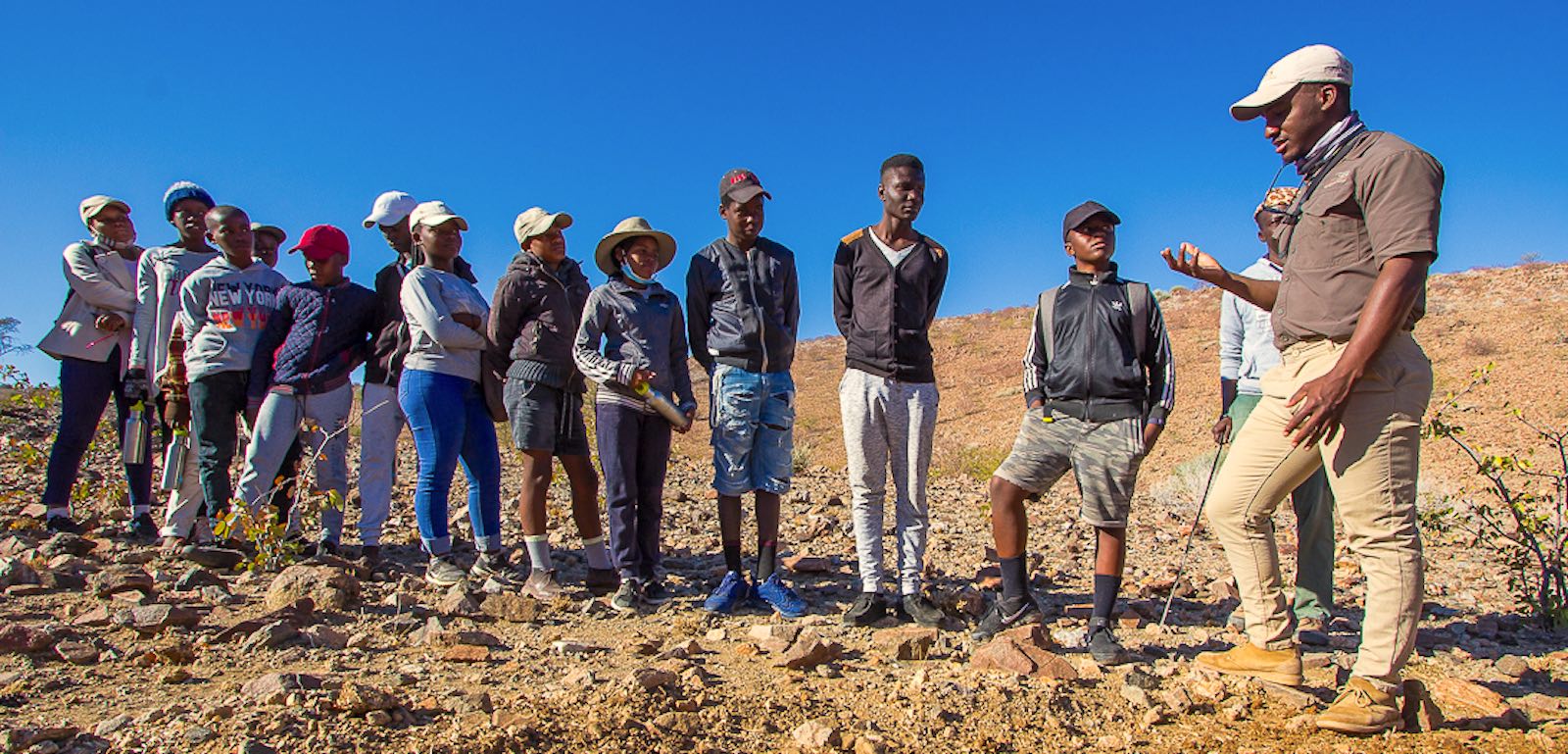
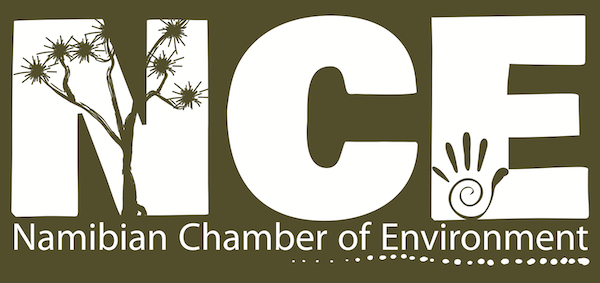
Children from Communal Conservancies learn how to become Young Defenders of their environment
23rd July 2020
Two groups of Young Defenders from the //Huab and Doro !Nawas conservancies were hosted at the Huab Under Canvas Ultimate Safaris Camp for an immersive wilderness experience. Each group enjoyed a free four-day conservation course during the month of July, made possible by a partnership between Conservation Travel Foundation (established by Ultimate Safaris) and the Namibian Chamber of Environment (NCE).
The communal conservancies in north-west Namibia are a conservation success story, as communities have embraced the concept of wildlife and habitat conservation for the benefit of current and future generations. This is why the first two courses of this kind were aimed at children from local conservancies. The conservancies assisted by identifying suitable children from among their members – boys and girls 12-15 years old who attend school diligently and can speak English. As a result, 28 children (14 girls and 14 boys) were sent in two mixed-gender groups of 14 – the first group from //Huab and the second from Doro !Nawas Conservancy; both conservancies have joint-venture partnerships with Ultimate Safaris.
Despite living in conservancies, many of these children had not had the privilege of viewing wildlife and learning about plants and animals in their environment. During the course the children were treated to on-foot rhino tracking with conservancy Rhino Rangers that led them to two black rhinos, elephant tracking in the //Huab River and sightings of Hartmann’s mountain zebra, springbok, gemsbok, jackal, baboons and kudu. Along the way, they learned more about plants and how to read signs left by wild animals, like footprints and dung. The groups also checked camera traps set up to monitor the movements of leopard and rhino.
These activities and sightings were used as a springboard to engage with conservation topics like human-wildlife conflict, anti-poaching and tourism. These issues affect the lives of many people living in conservancies, so it is likely that the children have heard about them but never had the chance to discuss them. The rangers and guides answered their many questions and encouraged debate to get the children thinking.
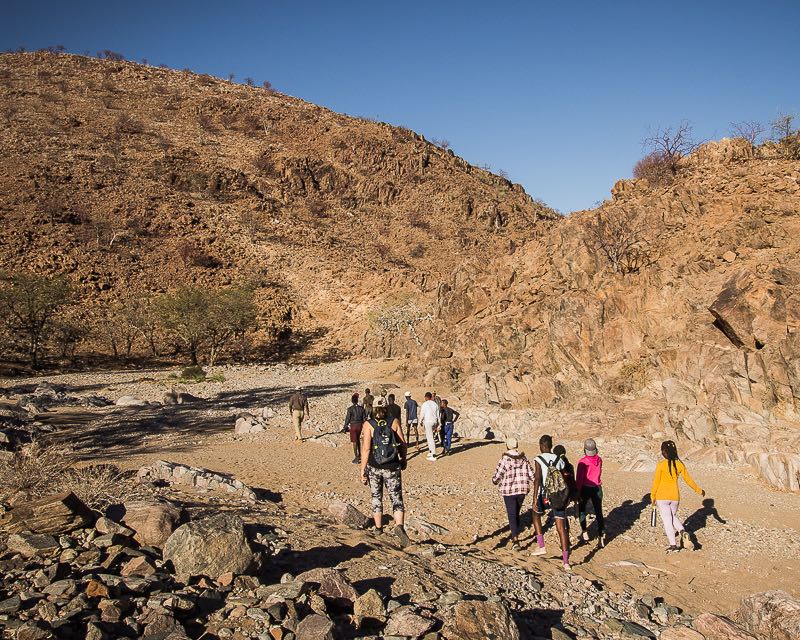
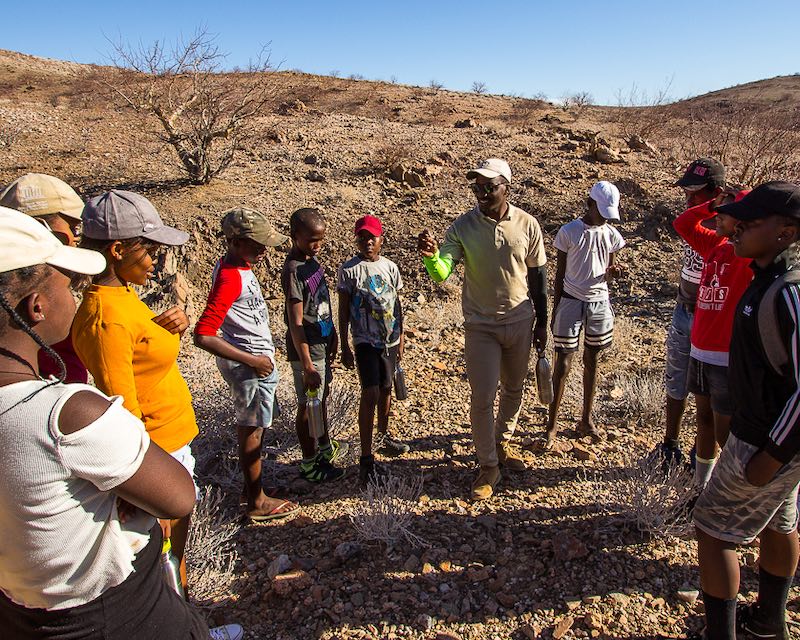
The educational content of the course is guided by the seven Leave No Trace tourism principles: 1) Be considerate of other travellers; 2) Respect for wildlife; 3) Making a campfire responsibly; 4) Planning ahead and preparing; 5) Leave what you find; 6) Travel and camp on durable surfaces; 7) Disposing of waste properly. The last principle was further expanded through a discussion on the 4R’s – Reduce; Re-use; Re-cycle; Responsibility. At the end of the course, children are given Leave No Trace and Young Defenders certificates in recognition of their active participation.
While the children were initially shy, the activities (including swimming in the camp pool!) and friendly guides encouraged them to express themselves. They started asking questions that led to further discussions on many of the topics and thus learned a great deal from their guides and the Rhino Rangers. The variety and frequency of wildlife sightings maintained their interest throughout the experience and introduced them to their own “backyards” in a totally new way.
Young Defenders courses are run regularly at the cost of N$ 3,950 per participant and are open to Namibian families who want their children to learn more about their environment and what they can do to conserve it (find out more here [PDF download]). The courses for communal conservancy members are fully funded, courtesy of the Conservation Travel Foundation, Namibian Chamber of Environment (NCE) and their respective funders, to ensure that this excellent opportunity is available to families who are unable to afford it. NCE looks forward to extending this partnership with Ultimate Safaris in future to increase the number of groups of young Namibians coming from conservancies and as well as from disadvantaged backgrounds in urban areas.
For articles on similar topics, please click one of the following options:
If you enjoyed this page, then you might also like:
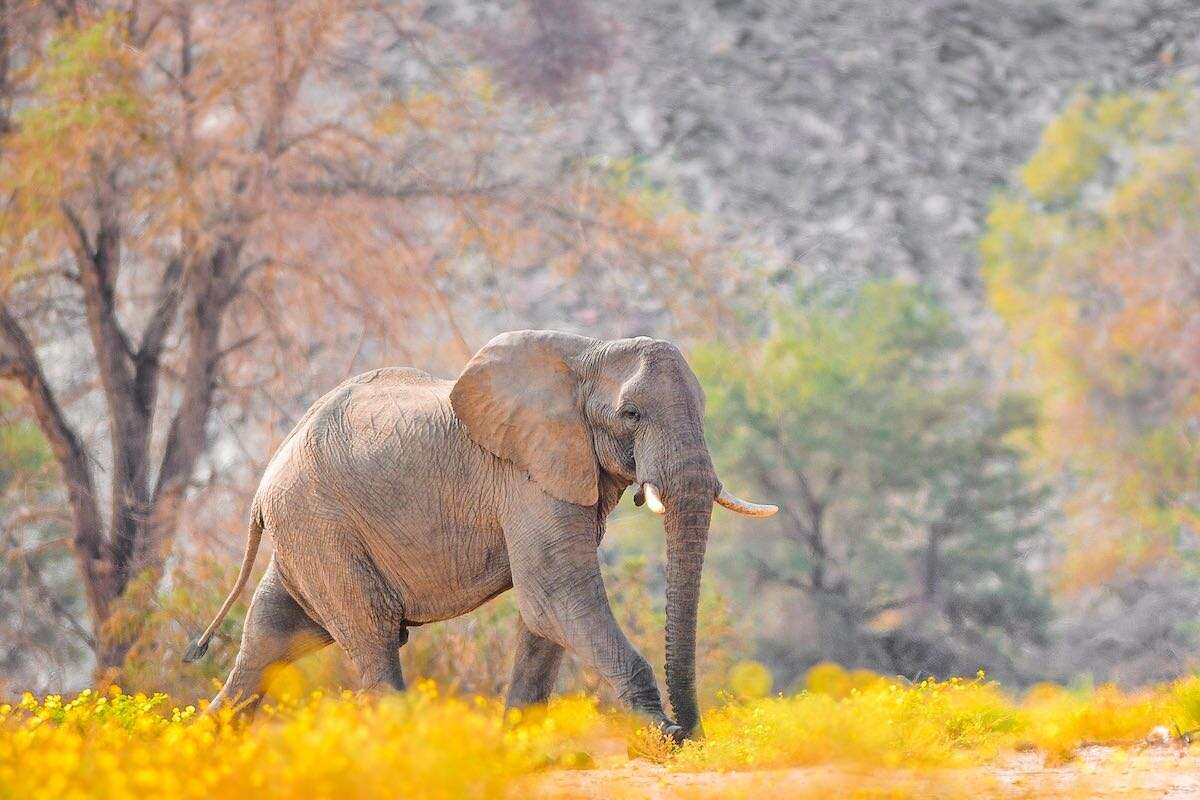


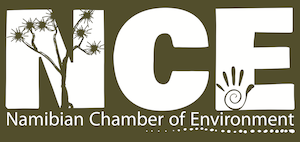
The Namibian Chamber of Environment (NCE) is an umbrella Association that provides a forum and mouthpiece for the broader environment sector, that can lobby with government and other parties, that can raise funds for its members and that can represent the sector.

Gail Thomson is a carnivore conservationist who has worked in South Africa, Namibia and Botswana on human-carnivore conflict, community conservation and wildlife monitoring. She is interested in promoting clear public communication of science and conservation efforts in southern Africa.
We use cookies to monitor site usage and to help improve it. See our Privacy Policy for details. By continuing to use the site, you acknowledge acceptance of our policy.